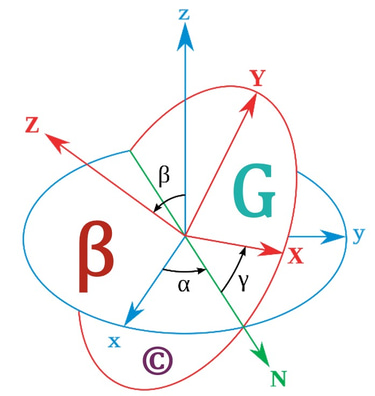Exploring Electrical Engineering Projects: From Smart Homes to Renewable Energy Systems
Electrical engineering is a dynamic field that powers innovation across industries. From designing smart home systems to developing renewable energy solutions, electrical engineers play a crucial role in shaping the future. In this blog, we’ll explore five exciting types of electrical engineering projects that showcase the diversity and impact of this field. Whether you’re a student looking for project ideas or a professional seeking inspiration, this guide will spark your creativity and highlight the endless possibilities in electrical engineering.
ELECTRICAL ENGINEERINGSUSTAINABILITYENERGY
Engr. Benjamin V. Gonzales Jr.
6/1/20252 min read
1. Smart Home Automation Systems
Overview: Smart home projects integrate IoT (Internet of Things) devices, sensors, and automation to create energy-efficient, secure, and convenient living spaces.
Key Components:
Microcontrollers (e.g., Arduino, Raspberry Pi).
Sensors (motion, temperature, light).
Wireless communication modules (Wi-Fi, Zigbee, Bluetooth).
Project Ideas:
Automated lighting and HVAC systems.
Smart security systems with facial recognition.
Voice-controlled home appliances.
Impact: Reduces energy consumption, enhances comfort, and improves home security.
2. Renewable Energy Systems
Overview: Renewable energy projects focus on harnessing clean energy sources like solar, wind, and hydro power.
Key Components:
Solar panels, wind turbines, or hydro generators.
Battery storage systems.
Power inverters and charge controllers.
Project Ideas:
Designing a solar-powered charging station.
Building a small-scale wind turbine for rural electrification.
Developing a hybrid renewable energy system for off-grid applications.
Impact: Promotes sustainability, reduces carbon emissions, and provides energy access to remote areas.
3. Electric Vehicle (EV) Charging Infrastructure
Overview: With the rise of electric vehicles, there’s a growing need for efficient charging infrastructure.
Key Components:
EV charging stations (Level 1, Level 2, DC fast chargers).
Power management systems.
Renewable energy integration (solar-powered charging stations).
Project Ideas:
Designing a smart EV charging station with load balancing.
Developing a mobile app for locating and reserving charging stations.
Integrating solar panels into EV charging systems.
Impact: Supports the transition to electric mobility and reduces reliance on fossil fuels.
4. Industrial Automation and Control Systems
Overview: Industrial automation projects aim to optimize manufacturing processes using advanced control systems.
Key Components:
PLCs (Programmable Logic Controllers).
SCADA (Supervisory Control and Data Acquisition) systems.
Sensors and actuators.
Project Ideas:
Designing a conveyor belt control system.
Developing a temperature and humidity monitoring system for factories.
Creating a robotic arm for assembly line tasks.
Impact: Increases efficiency, reduces human error, and lowers operational costs.
5. Power System Design and Optimization
Overview: Power system projects focus on designing, analyzing, and optimizing electrical grids for reliable and efficient energy distribution.
Key Components:
Transformers, circuit breakers, and relays.
Load flow analysis software (e.g., ETAP, MATLAB).
Renewable energy integration.
Project Ideas:
Designing a microgrid for a remote community.
Analyzing power quality and proposing solutions for improvement.
Developing a fault detection and isolation system for power grids.
Impact: Ensures stable and reliable power supply, especially in areas with high renewable energy penetration.
Conclusion
Electrical engineering projects are as diverse as they are impactful. Whether you’re passionate about smart technology, renewable energy, or industrial automation, there’s a project that aligns with your interests and skills. By tackling these challenges, electrical engineers not only advance their careers but also contribute to a more sustainable and innovative future. So, roll up your sleeves, pick a project, and start making a difference today!





